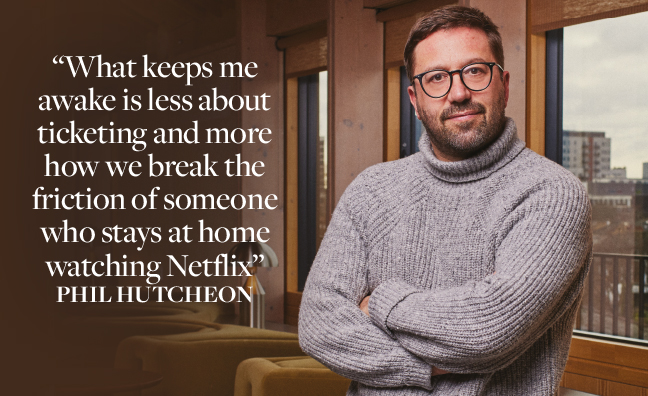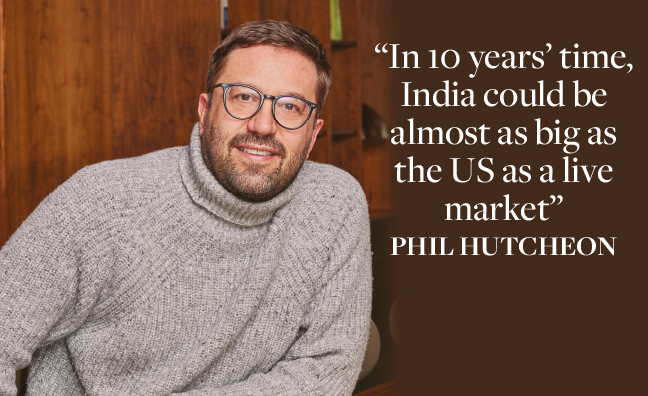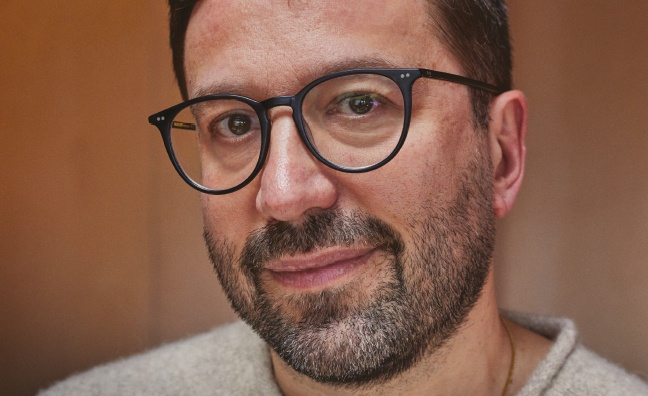Dice CEO Phil Hutcheon has spoken to Music Week about building on their achievements in 2023.
As well as continuing international and venue partner growth for the ticketing and music discovery company, Dice was victorious at the Music Week Awards last year. It was their first win in the Ticketing Company category since 2016. At that point Dice was making waves with its pledge that the platform would have no hidden fees for fans.
Since then, the tech-focused start-up has grown to become a global player with key features including the app Waiting List for shows and the Groups option to connect fans and boost attendance.
Phil Hutcheon has reflected on the trajectory of the company over the last decade in the Music Week Interview.
“We had a senior leadership meeting recently,” he said. “We were chatting about the importance of getting the balance right between inventing stuff and innovating, whilst also ensuring we build the stuff that venues and artists and promoters need, the practical stuff. We always have to be careful – if we switched entirely into making everything more and more efficient, you start losing the thing of creating this whole new world.”
Dice is again nominated for the Music Week Awards in 2024.
Here, founder and CEO Phil Hutcheon opens up about balancing app innovation with the practicalities of ticketing…
In a previous Music Week interview, you described Dice as “Spotify for live”. Do you still think that?
“Spotify was a massive inspiration when we started because it’s a platform and Dice is a platform. When you buy a ticket on Dice, that’s easy, because it’s the first transaction. Our job is to keep you coming back and get fans to go out at least twice as much as they’re normally going out and having that good experience. With Spotify, the magic thing was when you pressed play and it just worked. I know how hard they worked to come out. For us, it’s that people see tickets and they tap a button and it’s done. Make it as easy as possible.”
You also said Dice was a hybrid between a ticketing and a tech company. What does it take to make sure it’s a perfect balance between the two?
“Well, it’s… ingesting that experience in terms of the practicalities of ticketing and making sure that we’re very good at that. But then also, how do you help bring people into what it should be like? When we started, everyone was saying, ‘No one’s going to download an app to buy a ticket’. I was like, ‘But we use apps for everything else?’ And then the argument was, ‘OK, fine, young people might download the app, but older people won’t’. Why wouldn’t they? And then there was the Waiting List [Dice’s virtual queue to buy tickets that other fans return if they can’t make an event] and people were like, ‘What’s Waiting List?’ It’s not that you just sign up to do it, there’s lots of tech that goes into it. Waiting List has generated tens of thousands of new shows. Diplo did three events in New York in the same day last year where the first one sold out, then the matinee sold out and then the late-night show sold out because they knew the demand was there. It’s also giving artists the confidence that they can sell out the next show. So, [looking at] the Bicep example: Village Underground – OK, Roundhouse – OK, Brixton – OK, Ally Pally… We knew with 100% confidence that those shows would sell out and Waiting List data helps the artists build it up to do that.
“Then, also from the fan side, things happen and at the tap of a button they’re getting a refund and someone else is getting a ticket to the show at the last minute – it’s magical. The last bit was getting venues’ attendance closer to 100%. We talked to each venue about how many people turn up to a ‘sold-out’ show, it was maybe 85-90%. I said, ‘OK, if the venue is like 5,000, it’s 400-500 that people don’t turn up?’ and they go, ‘Yeah’. Then I asked, ‘What’s your average spend per head?’ – it was 20 bucks and they were just losing money. It was a relatively new concept at the beginning. This year, we’ve got stuff coming up which, again, is about getting people to think differently about how to do things.”

In terms of that hybrid mentality, what keeps you awake at night?
“I think about everything and explore everything. I met with a lot of Web3 companies, especially at the end of the pandemic, finding out what it was, and I’ve met with loads of AI people and companies over the entire course of Dice because that’s been a big part of us from day one. Most of those conversations don’t lead to anything but I think that if you’ve got a growing mindset, they help contribute to something else. Like a magpie, you meet all these interesting people, and you find out what’s going on.
“Those conversations made us think more about gamification and loyalty with fans and the idea – and this is one of the things for this year – of getting your fans to be more into streaks, like, ‘Cool, you went to a show every month this year, let’s find your next show in May’, and have leaderboards with your friends about who’s going to the most concerts and really gamifying going out. What keeps me awake is less about ticketing and more about how we break that friction of someone who’s staying at home watching Netflix – what is it that gets people to go out? [That said] people are going out more than ever. We see it in all our data, every month Dice is selling more tickets than last month.”
Pretend that Covid didn’t happen, what’s been the biggest challenge?
“Knowing what’s coming up and being really excited about it, but making sure that we do today’s job really well. As in, you have all these opportunities that you can do, but you’ve got to stay super-focused on now. And that’s across the board, we all do that as one. Having to wait for venue rights to expire is another challenge, because someone else might have them and we have to wait for them to come up. Dice get the rights and then we go into a city and then we get other venues on board, so we have to be patient. Talent too, finding people who have the right mix in terms of being comfortable with a company that is growing so quickly. It’s never just gradual growth. When you grow 10 times in two years, it can be unsettling, so having people with the right mix of resilience and understanding, it’s hard.”
Dice has moved into the US and Europe. What’s next on the international expansion plans?
“We’re already in India, and Western Africa. The way that we think about it is, ‘OK, the two biggest genres of music in the world are Latin and Afrobeats’. Yet if you ask an artist if they want to play in Lagos, they’re like, ‘I don’t know how to do it’. Data helps solve that problem. Dice can go, ‘This is how many tickets we think you can sell, this is what we think your audience is going to be’. It helps build up confidence. It’s just maths. India in 10 years’ time could be almost as big as the US for a live market. You’re seeing it on music streaming, seeing the artists coming through. We see it with the shows that we’ve got already in India; they’re completely oversubscribed and there’s a huge demand for concerts there. It’s all about how we build confidence for people to go there. The more that people go there, the more that the local scene can invest into the infrastructure, the more we can get artists from India to tour Europe and the US. It’s the same principle that we’ve got from taking artists from Barcelona into the US, the same for artists going into Ghana and Nigeria or anywhere else.”

In terms of the grassroots live music sector, are you concerned about smaller venues in the UK shutting and that pipeline of new artists struggling to come through?
“Yeah, that sucks. I would say that if you look at the proportion of time that we spend to try to help smaller venues versus how much money we make from that, it’s totally loss-making for us but it’s the right thing to do, to invest in those venues, help them sell out their shows, help them get talent. Help [from Dice] also looks like visibility in the app. We’re encouraging fans to follow venues, be it Moth Club or Shacklewell Arms, and know about what shows are going on. We’ve got millions of people following venues, especially small venues.”
Looking forwards, what does the future look like for Dice?
“We’re still very much at the beginning. We still have a ton of work to do. We still have a lot to do in North America, and a lot to do in Europe. But then we’ve got the rest of the world. It’s connecting everything up together. It’s a lot, it’s a big roadmap.”
Subscribers can read the full interview here.
PHOTOS: Will Grundy










